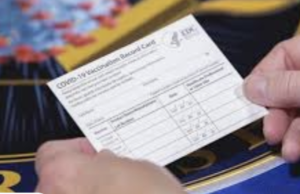Educational Democracy: New schools offering different avenues for students success

If you’re a high school student currently inhabiting planet Earth, chances are you’ve thought something along the lines of “Why do I even have to go to school?” more than once. Your answer for that question has probably come out to somewhere between “I need it to get a good job” and “It’s the law.”
However, the law only says that you have to get an education that meets certain requirements. In Iowa, between the ages of six and 16, you have to “attend some public school or an accredited non-public school, or be under competent private instruction or independent private instruction in accordance with the provisions of chapter 299a.”
This leaves open opportunity for several different kinds of education, including homeschooling, online schooling, attending a private school and even attending a sudbury school or being unschooled at home. Most people have heard of homeschooling, online schooling and attending private school, but not as many know of sudbury schools and unschooling.
A sudbury school is a school where the students and staff are a democracy. All the learning taking place is initiated by the student, who has total autonomy. As a student, you decide what to do with your own time, and you learn through your own experiences at the school rather than being given school work.
Sudbury schools believe that it is natural to learn, and that trying to direct and control how a student learns only interferes with their natural learning process.
Governing within a sudbury school happens during a weekly meeting, during which students and staff decide on school rules, how the school’s budget will be managed, the hiring and firing of staff members, and expulsions. It is a democracy, and these schools believe it is the best way to prepare students for participating in democracy as adults.
However, there are only about 40 sudbury schools in the United States, none of which are in Iowa, so it’s not an option for most students.
What is an option is unschooling. Unschooling is similar to sudbury schooling in that all learning is directed and controlled by the student who initiate their learning.
Advocates of unschooling see it as freedom from traditional schooling, which they claim instills fear in students and is not conducive to actual learning. John Holt, the founder of unschooling, said, “The anxiety children feel at constantly being tested, their fear of failure, punishment and disgrace, severely reduces their ability both to perceive and to remember, and drives them away from the material being studied into strategies for fooling teachers into thinking they know what they really don’t know.”
Unschoolers aren’t the only ones questioning traditional schooling. Many libertarians are harsh critics of public school in particular, believing it gives the state too much power over young minds. They view public schools as a breeding ground for state indoctrination, and argue that the government should not play such a large role in education.
Liberals tend to favor public schools, as they provide a basic education to all citizens.
Conservatives are generally fine with public schools, so long as they don’t teach evolution and ignore separation of church and state.
What schools teach and how they are funded have become a political topic for government officials and school board members to debate. Ultimately, they should be about the students, who generally don’t get a vote on education.
Students are taught about the types of triangles and what’s in a cell and what went on during the Mexican-American war, but they are never taught to think critically about the education system or to demand that it change to benefit them, and that needs to change.









You must be logged in to post a comment Login